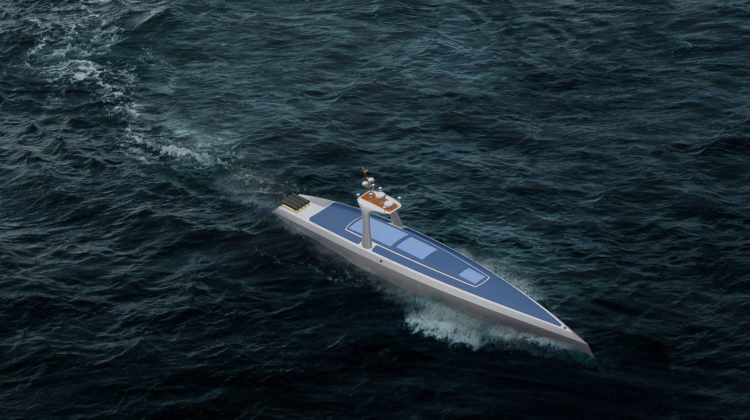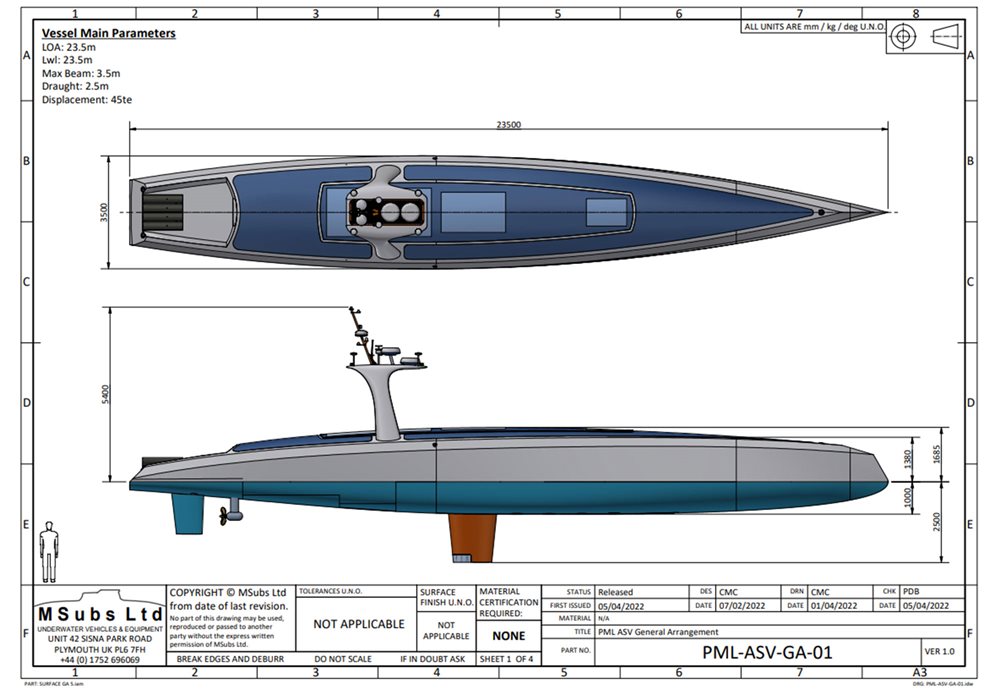
Plymouth Marine Laboratory (PML), a non-profit organisation that specialises in marine research, has revealed designs for the world’s first long-range autonomous research vessel.
Supported by seed funding from the Natural Environment Research Council (NERC), the ‘Oceanus’ has been designed as a lightweight, self-righting, mono-hulled autonomous vessel capable of carrying an array of monitoring sensors.
Designed primarily to make the trans-Atlantic sampling voyage from the UK to the Falklands, the Oceanus will carry an advanced scientific payload and use the latest AI technology to help navigate the best course to its target location, with real-time input from weather forecasts and other marine data feeds.
Currently, most oceanographic sampling is performed either through fully manned research trips or via moored data buoys and smaller autonomous devices. Although still important for validation purposes and more complex tasks, research trips are costly, logistically challenging and have an environmental footprint, while smaller autonomous devices are restricted in their range.
According to the vessel’s designers, the Oceanus represents a ground-breaking vision of how long-range marine research can be carried out in a more environmentally benign way. While it will feature a fuel-efficient diesel engine, this will be complemented by on-board micro-energy generation devices, as well as solar panels on the deck. With the weight of the crew and their living facilities removed, this will greatly reduce the vessel’s fuel consumption.

The command centre for Oceanus will be hosted at PML and will display oceanographic conditions in near-real time across the ship’s transect, providing scientists and other users with open access to the latest and most robust oceanographic data.
In situ sampling will still occasionally be required in order to validate the autonomously collected data and to perform more complex monitoring and experiments that require proximity to the sample sources. However, autonomy on this scale will allow for radically more responsive and more frequent data collection at a wider range than is currently possible, helping to plug any gaps in datasets and greatly improve marine modelling.
The RV Oceanus offers a unique platform for innovation and the team hopes that it will eventually enable a remote Atlantic Meridional Transect (AMT), a unique annual marine research expedition along the length of the Atlantic Ocean that embarked on its first voyage in 1995. An autonomous AMT could lead to multiple data collection missions a year, which would provide a much better understanding of the dynamics of the ocean environment.
‘This is a hugely exciting venture, with the capacity to revolutionise the way we carry out marine research expeditions and support the drive towards net zero,’ said Icarus Allen, PML’s chief executive. ‘The Oceanus will exploit the very latest in AI technology, enabling us to push the frontiers of marine science and open up new opportunities in how we monitor the ocean environment. Not that long ago, this would have been the stuff of science fiction fantasy, but through the design and development of the Oceanus, we are really unlocking the future of ocean-going marine research.’



